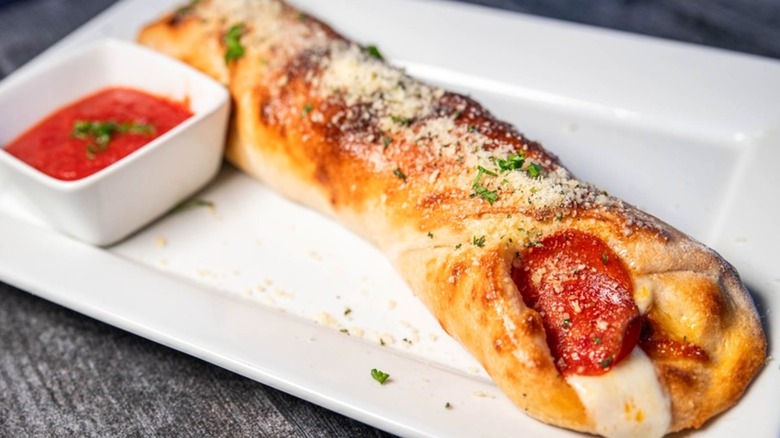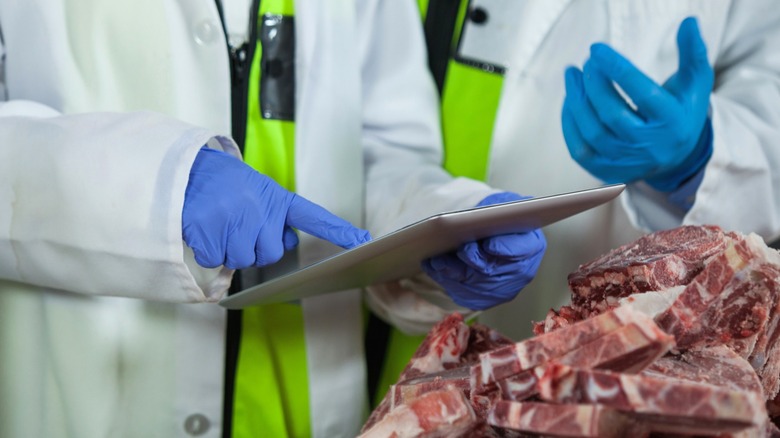Why Some People Think Pepperoni Rolls Are Illegal Outside Of West Virginia
Practically every region in the U.S. has its own unique culinary claim to fame, and Appalachia is no different. From apple stack cakes to West Virginia-style hot dogs, the mountainous territory of the Eastern United States offers locals and folks who visit a diverse blend of humble comfort food and gourmet delights. One beloved local staple, the pepperoni roll, is steeped in cultural significance. Yet, because of a proposed regulation in the 1980s, some people think that, much like haggis is technically banned in the U.S., pepperoni rolls are illegal to make or sell.
The pepperoni roll is a simple snack born from necessity and now associated with the culinary history of West Virginia. Sticks or slices of pepperoni are encased in dough (occasionally alongside cheese) for a quick bite that can be kept unrefrigerated throughout the day. That was important to coal miners in the early 1900s, who labored underground for hours on end and needed something that would fill their bellies on a short lunch break. Italian immigrants began making the savory snacks as a practical way to get an abrupt influx of calories and energy on those long days in the mines. In 1927, bakeries began selling them to the masses.
For decades, the popularity of pepperoni rolls grew in Appalachia. However, in the late '80s, their fate was in jeopardy. A government agency was considering changing the existing laws that allowed for the cheap production of pepperoni rolls. This would have essentially made it inconceivable to produce the classic comfort food for a profit.
An Appalachian Senator saved pepperoni rolls
In virtually every part of the United States, folks producing food products are subject to several oversight regulations, including those focused on temperature control. Yet, in 1987, a department of the USDA, the Food Safety and Inspection Service (FSIS), began to wonder if pepperoni rolls were potentially problematic. The FSIS wanted bakeries selling pepperoni rolls to be treated like meat-packing plants, and with that change, begin adhering to the rigorous guidelines those facilities must follow.
The suggested change could potentially put the mom-and-pop bakeries that sold pepperoni rolls out of business, as they couldn't afford to comply with the stricter new regulations. One odd loophole allowed the bakeries to cut the rolls in half to avoid being reclassified, but owners found that people had no interest in eating the fare in that condition. However, when former West Virginia Senator John D. Rockefeller heard of the proposed change, he took on the cause of the pepperoni roll.
The politician contacted Richard Lyng, then acting Secretary of Agriculture, to plead the case of West Virginians who feared they might go out of business. Lyng was sympathetic to Rockefeller's advocacy for his constituents and made sure that pepperoni rolls would get an exception. The regional food was given a reprieve. Despite some folks thinking pepperoni rolls are somehow illegal, they definitely aren't; you can readily find them in West Virginia and surrounding localities at bakeries, food trucks, and convenience stores.

